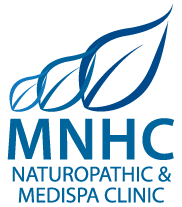Dear Dr Diana
How do I improve my memory?
Ginkgo biloba has been used medicinally for thousands of years. The scientific literature overall does suggest that ginkgo may benefit people with dementia (multi-infarct and Alzheimer’s type), and may be as helpful as acetylcholinesterase inhibitor drugs such as donepezil (Aricept®). Well-designed research comparing ginkgo to prescription drug therapies is needed. Avoid if allergic or hypersensitive to members of the Ginkgoaceae family. If allergic to mango rind, sumac, poison ivy or oak or cashews, then allergy to ginkgo is possible. Avoid with blood-thinners (like aspirin or warfarin (Coumadin®)) due to an increased risk of bleeding. Ginkgo should be stopped two weeks before surgical procedures. Ginkgo seeds are dangerous and should be avoided. Skin irritation and itching may also occur due to ginkgo allergies. Ginkgo should not be used in supplemental doses if pregnant or breastfeeding.
Sage: Sage has long been suggested as a possible therapy for memory and cognitive improvement. Several trials provide evidence for the use of sage for this indication. Additional study is needed to confirm these findings and determine the best dose. Avoid if allergic or hypersensitive to sage species, their constituents, or to members of the Lamiaceae (mint) family. Use cautiously with hypertension (high blood pressure). Use sage essential oil or tincture cautiously in patients with epilepsy. Avoid if pregnant or breastfeeding.
Good scientific evidence:
Aromatherapy: Aromatherapy is the use of essential oils from plants for healing purposes. There is suggestive preliminary evidence that aromatherapy using essential oil of lemon balm (Melissa officinalis) may effectively reduce severe agitation in dementia when applied to the face and arms twice daily. Other research reports that steam inhalation of lavender aromatherapy may have similar effects. However, there is a conflicting study that reports no benefits of aromatherapy using lemon balm, Lavender officinalis, sweet orange (Citrus aurantium), or tea tree oil (Malaleuca alternifolia). Overall, the evidence does suggest potential benefits. It is not clear if this is because of anxiety-reducing qualities of these therapies. Additional study is necessary. There is also preliminary research suggesting that aromatherapy used with massage may help to calm people with dementias who are agitated. However, it is not clear if this approach is any better than massage used alone. Essential oils should be administered in a carrier oil to avoid toxicity. Avoid with a history of allergic dermatitis. Use cautiously if driving/operating heavy machinery. Avoid consuming essential oils. Avoid direct contact of undiluted oils with mucous membranes. Use cautiously if pregnant.
Bacopa: Bacopa monnieri leaf extract is called brahmi in Ayurvedic medicine (medicine practiced in India) and is widely used in India for enhancing memory, pain relief, and treating epilepsy. Although bacopa is traditionally used in Ayurvedic medicine to enhance cognition, high-quality clinical trials are lacking. Two methodologically weak studies found some evidence that bacopa improves cognition. However, more high-quality and independent research is needed before bacopa can be recommended for enhancing brain function in adults or children. Bacopa may interact with medications such as calcium channel blockers (used for arrhythmias and high blood pressure), thyroid medications, phenytoin (Dilantin®), and drugs metabolized by the liver. Use cautiously with drugs or herbs that are metabolized by cytochrome P450 enzymes, thyroid drugs, calcium blocking drugs, and sedatives. Avoid if allergic/hypersensitive to Bacopa monnieri, its constituents or any member of the Srcophulariaceae (figwort) family. Avoid if pregnant or breastfeeding.
Dr Lorenzo Diana
Doctor Of Naturopathic Medicine

